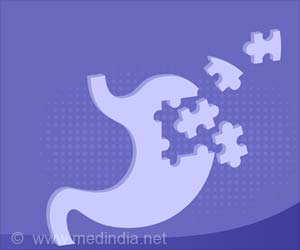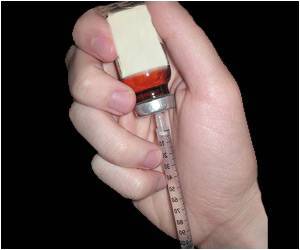PLK1 inhibitors are cancer drugs that help to treat inflammatory diseases by suppressing 'NLRP3 inflammasome', responsible for triggering immune response.

PLK1 inhibition dampens NLRP3 inflammasome-elicited response in inflammatory disease models
Go to source).
Cancer Drug PLK1 Inhibitors May Help Treat Inflammatory Diseases
We are born with a defense system known as innate immunity, which acts as the first line of defense against harmful materials in the body. Some of these materials will come from outside, such as bacterial or viral infections, while others can be produced within the body.‘The research of cancer drug-PLK1 inhibitors dampening NLRP3 inflammasome will open the door for therapeutic options for inflammatory diseases caused by aggressive immune responses. #PLK1inhibitors #NLRP3inflammasome #inflammation #heartdisease #gout’





Innate immunity triggers an inflammatory response, which aims to attack and destroy the perceived threat. But sometimes, this response can become overactive and can cause harm to the body.One such example of this is gout, which occurs when urate crystals build up in joints, causing excessive inflammation, and leading to intense pain. Another example is heart attack, where dead cells build up in the damaged heart – the body sees itself as being under attack and an overly aggressive immune system fights back, causing collateral damage to the heart.
Several of these conditions are characterized by overactivation of a component of the innate immune response known as an inflammasome – specifically, the inflammasome NLRP3(NLR family pyrin domain containing 3). Scientists at the Victor Phillip Dahdaleh Heart and Lung Research Institute at Cambridge have found a molecule that helps NLRP3 respond.
This molecule is known as PLK1. It is involved in a number of processes within the body, including helping organize tiny components of our cells known as microtubules cytoskeletons. These behave like train tracks inside the cell, allowing important materials to be transported from one part of the cell to another.
Anti-Inflammatory Role of PLK1 Inhibitors Against NLRP3 Inflammasome
Dr. Xuan Li from the Department of Medicine at the University of Cambridge, the study’s senior author, said: “If we can get in the way of the microtubules as they try to organize themselves, then we can in effect slow down the inflammatory response, preventing it from causing collateral damage to the body. We believe this could be important in preventing a number of common diseases that can cause pain and disability and in some cases can lead to life-threatening complications.”But PLK1 also plays another important role in the body – and this may hold the key to developing new treatments for inflammatory diseases.
Advertisement
When the Cambridge scientists treated mice that had developed inflammatory diseases with a PLK1 inhibitor, they showed that it prevented the runaway inflammatory response – and at a much lower dose than would be required for cancer treatment. In other words, inhibiting the molecule ‘calmed down’ NLRP3 in non-dividing cells, preventing the overly aggressive inflammatory response seen in these conditions.
“These drugs have already been through safety trials for cancer – and at higher doses than we think we would need – so we’re optimistic that we can minimize delays in meeting clinical and regulatory milestones,” added Dr. Li.
The research was funded by the British Heart Foundation. Professor James Leiper, Associate Medical Director at the British Heart Foundation said: “This innovative research has uncovered a potential new treatment approach for inflammatory heart diseases such as heart failure and cardiomyopathy. It’s promising that drugs targeting PLK1 – that work by dampening down the inflammatory response – have already been proven safe and effective in cancer trials, potentially helping accelerate the drug discovery process.
Reference:
- PLK1 inhibition dampens NLRP3 inflammasome–elicited response in inflammatory disease models - (https://www.jci.org/articles/view/162129)
Source-Eurekalert















